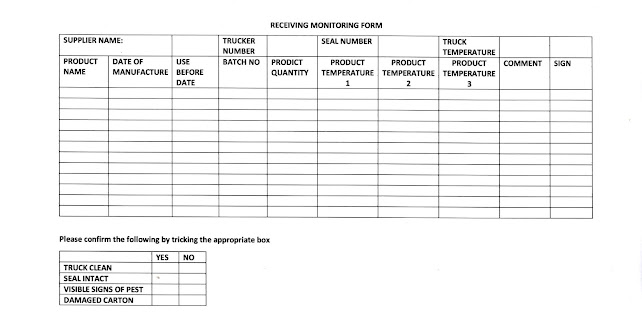HACCP Program for Warehouse Handling Food Products- A simple Guide for Startups
Definitions of terms used . Before we get started, let's first look at key terms to be used in this blog. Hazard Analysis Critical Control Point (HACCP) HACCP is a food safety management system that addresses food safety concerns through the analysis and control of contaminants (physical, chemical, and biological). Critical Control Points (CCP) Step in the process at which a control measure is applied to prevent or reduce a significant food safety hazard to an acceptable level. Critical limits Measurable values that separate acceptability from unacceptability. Deviation Non-fulfillment of a set requirement. Corrective actions These are actions taken to eliminate a deviation and to prevent its recurrence. You can read more about corrective action from here Risks Risks are the effects or consequences of the uncertainty of an event. To expand this a little, we can define risks as the likelihood that an identified hazard will actually cause harm and its potential impact (severity)...
